Explore and Support Bee-Friendly Brands
We’re proud to support a variety of sustainable brands doing more to preserve a friendly, habitable home for bees and pollinators.
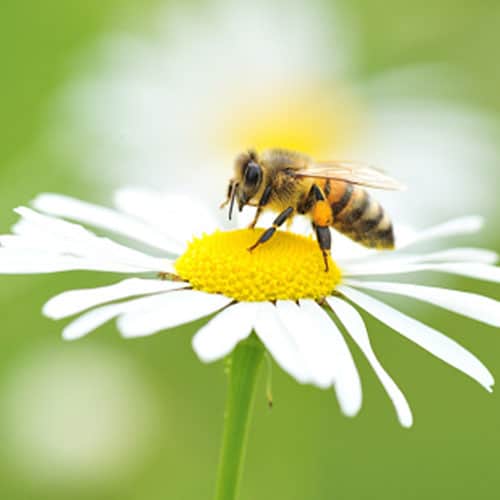
What’s all the buzz about saving the bees?
For starters, bees are un-bee-lievably important for farming and our environment. In fact, three out of four crops across the globe producing food for humans depend, at least in part, on pollinators. Pollinated crops include vegetables, fruits, seeds, nuts and oils. That means that every time you sip your favorite coffee, bite into a juicy strawberry or use a little sugar in your baked goods, you have bees to thank.The Power of Pollinators
Pollinator animals, like bees and wasps, fertilize plants by moving pollen from one flower to another, causing the plants to make fruits or seeds. These little powerhouses provide many benefits, including producing higher crop yields, larger, more uniform and flavorful fruits and supporting biodiversity.Now that you know how important it is to bee kind to bees, discover how you can shop and support bee-friendly brands to improve the health of bees and support native pollinators.
Shop NowWhole Earth & Sea
As a member of the International Bee Research Association since 1997, Whole Earth & Sea has conducted years of in-depth studies to better understand propolis, a compound bees use to build hives, pollen, royal jelly and active compounds in the honey. They’ve also studied the development of non-toxic herb-based miticides (used to kill mites), to combat the Varroa mite decimating bee colonies worldwide.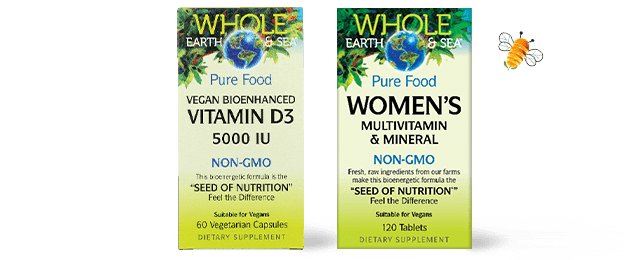
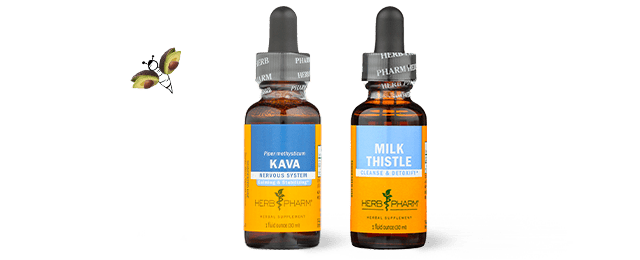
Herb Pharm
As a Regenerative Organic Certified farm, Herb Pharm supports bee and pollinator-friendly practices by growing over 90% of plants from their own seeds, making their own compost material and growing over 75 herbs on site.Gaia Herbs
On their 350-acre Certified Organic farm, Gaia Herbs relies on a variety of pollinators, like bees, bats, beetles, birds, moths and wasps. To help these animals prosper, they keep over 200 beehives on site and maintain a Monarch Waystation to ensure migrating butterflies have enough food and a safe place to lay their eggs.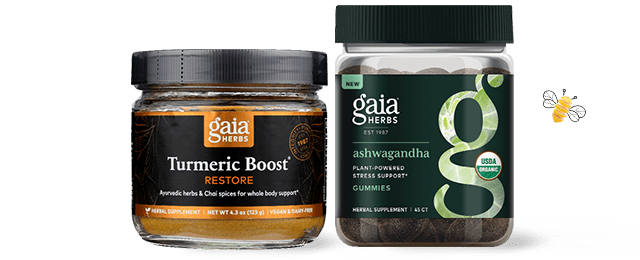
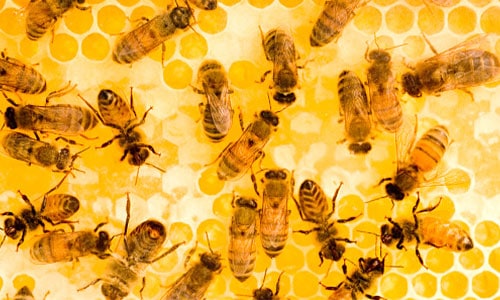
How Can You Help Protect Pollinators?
There are so many ways to help keep your local bee and pollinator community healthy and thriving, including:- Using sustainable farming practices without herbicides and pesticides
- Creating a water feature in your yard
- Removing invasive species and planting native species
- Adding diversity to your garden with many different types of plants
- Leaving piles of twigs, branches, or logs in your yard so bees can build nesting places

 VIEW ALL
VIEW ALL



